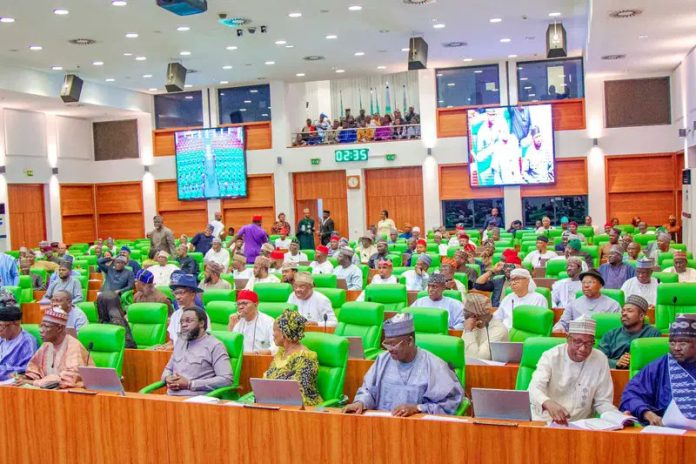The Public Accounts Committee (PAC) of the House of Representatives has raised concerns over the poor implementation of the capital component of Nigeria’s 2024 budget, which currently stands at a mere 25 percent.
The committee expressed its dissatisfaction during an interactive session with the Accountant General of the Federation, Dr Shakirat Madein, on Wednesday.
Led by Rep. Bamidele Salam, the PAC observed that the sluggish budget implementation hinders the country’s economic growth and development. Salam highlighted that the delay in the submission of the 2022 Consolidated Financial Statement to the Auditor General of the Federation contravenes the provisions of the 1999 Constitution.
“It is regrettable that Nigeria lags behind countries like Kenya, Ghana, and Rwanda in the submission and consideration of audit reports, primarily due to the non-submission of financial statements by the Accountant General’s office as mandated by law,” Salam noted.
During the session, the PAC scrutinized the Accountant General’s report on low revenue remittances by government-owned enterprises (GOEs). Rep. Salam called for stricter measures to plug revenue leakages through the automation of financial processes and regular audits.
The committee also urged the Accountant General, along with the Ministries of Foreign Affairs and Interior, to resolve pending issues regarding the non-automation of revenue collections from Nigeria’s foreign missions. The PAC emphasized that automating these processes would enhance transparency and accountability in public finance management.
Rep. Salam disclosed that the 2021 Auditor General’s report, recently submitted to the National Assembly, would be given expedited attention once the 2024 Appropriation Bill is passed. This move is aimed at improving legislative oversight and ensuring adherence to financial regulations.
In her defense, Dr. Madein attributed delays in the submission of consolidated financial statements to incomplete data from the Central Bank of Nigeria (CBN). She assured the committee that efforts were at an advanced stage to obtain the necessary information from the CBN and pledged to complete the exercise within two months.
Dr. Madein further highlighted several initiatives by her office to enhance public expenditure management. These include the review of the Financial Regulations 2009, which is now awaiting Federal Executive Council approval before becoming operational.
The Accountant General reaffirmed her commitment to strengthening regulatory frameworks and implementing new measures to promote greater accountability in managing public funds.
The PAC’s deliberations highlights the urgency of addressing budgetary inefficiencies and ensuring that public resources are effectively managed to foster economic development. With promises of enhanced automation and stricter accountability measures, stakeholders await tangible outcomes that will reflect positively on Nigeria’s fiscal management.













